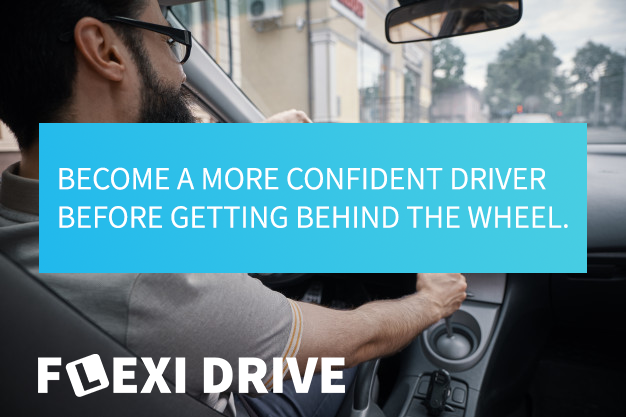So, you just received your provisional licence in the post and your all excited to get behind the wheel. While it is exciting, it can be a very daunting experience too. We are here to give you some pointers and help you overcome these feelings before stepping foot into a car.
We recommend an introductory lesson which can be extremely beneficial for first-time drivers. You can simply book in through our app which can be downloaded here.
In the meantime, here are some techniques to boost your driving confidence and put the nervous feeling to rest.
Rules of the road.
By improving your knowledge on the rules and regulations of driving, it can put your mind at ease and prevent panic. Things to keep in mind are signaling at the correct time, the speed limit, lane changing, distance between vehicles, and understanding traffic light and signage meanings. Educate yourself on these points and you will feel more confident immediately.
Familiarise yourself with your car.
The first thing to do when getting into any car for the first time, whether it be your own or your driving instructors. Be sure to familiarise yourself with the basic controls such as the accelerator, brake, clutch, steering wheel controls, gear shift lever, parking brake, light control, fuel type, and wiper control. This can avoid panicking under pressure when trying to figure out while driving.
Avoid distracted driving.
There are 3 types of distracted driving, manual, visual, and cognitive, but what do these mean?
Visual Distractions: These are the most common forms of distraction. They are basically anything that takes the drivers focus off the task of driving even for a split second. It could be the scenery, searching for something in the vehicle or reading a text message. Avoid these distractions and give full focus to thew task at hand, which is driving, to ensure safety for you and other road users.
Cognitive Distractions: This is usually a subconscious distraction. It could be something such as emotional stress, money problems, or family issues. If you have some experience driving, remember the time you were driving in a familiar area and you do not recall the last couple of minutes as your mind has wandered. This is one way a cognitive distraction takes over.
Manual distractions: This can be any reason that you take your hands off the wheel. It could be to change the temperature of the air conditioning or lowering the radio volume or simply grabbing your coffee.
The best way to tackle distracted driving is preparation.
- Start your GPS prior to departing.
- Avoid eating or grooming while driving. Your hair is lovely I am sure!
- Complete any call or texts before moving the vehicle. If something is urgent, pull over.
Stick to the speed limit.
The most obvious but commonly broken rule is sticking to the speed limit. We might not realise what speed we are going so it is important to throw your eye on the speedometer frequently.
The most important point, PRACTICE!
Between lessons, try keep a schedule with a parent or friend that holds a full licence over two years. Focus on what you covered in your lesson and get out as much a possible. Drive in all conditions such as wet and windy weather. Get use to using roundabouts and changing lanes. Practice makes perfect when learning to drive.
Remember to try driving in new areas and always believe in your abilities.




